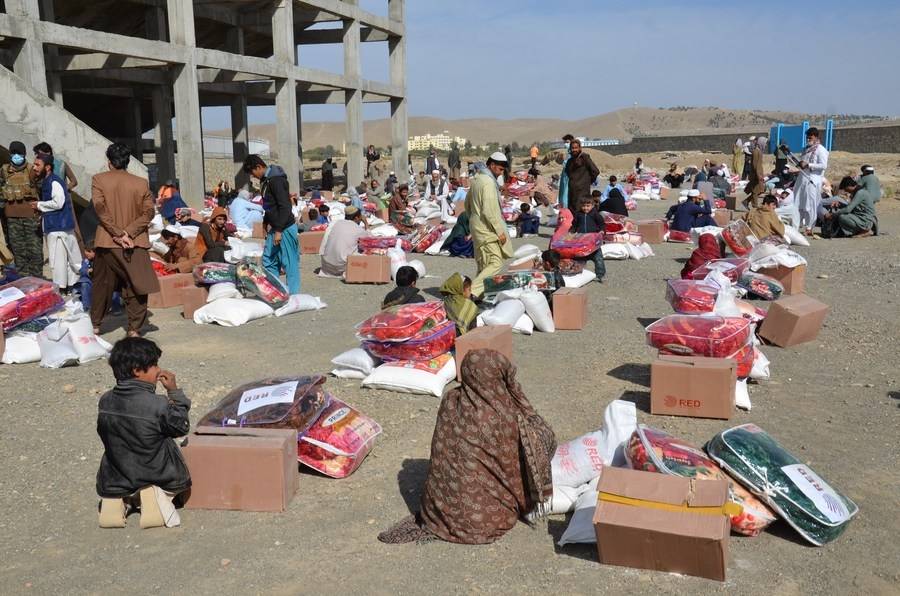The humanitarian aid was dispatched to Hairatan on Wednesday, a border town in the northern Balkh Province of Afghanistan….reports Asian Lite News
Uzbekistan sent 185 tonnes of humanitarian aid to Afghanistan consisting of flour, wheat, vegetable oil, pasta, canned goods, sugar, and instant meal items, Khaama Press cited Gazeta.UZ as quoting.
The humanitarian aid was dispatched to Hairatan on Wednesday, a border town in the northern Balkh Province of Afghanistan. The aid was transferred by the Uzbek special representative Ismatulla Irgashev, First Deputy Head of Surkhandarya region Anvar Oripov to the acting minister of Economy of Afghanistan, Deen Mohammad Hanif, Khaama Press reported.
Meanwhile, the Uzbek delegation discussed enhancing bilateral trade between both countries.
The humanitarian situation has gotten worse since the Taliban seized control of the nation.
Afghanistan continues to be one of the poorest nations in the world, Khaama Press reported, citing a recent research that the UNDP issued on Monday in Kabul.
The research also noted that the Taliban’s oppressive policies, particularly those that target women, have made the long-term prospects for economic growth bleak and insufficient.
Since the Taliban seized power in Kabul, the human rights situation has been exacerbated by a nationwide economic, financial and humanitarian crisis of unprecedented scale.
The Taliban dismantled the system to respond to gender-based violence, created new barriers to women accessing health care, blocked women’s aid workers from doing their jobs, and attacked women’s rights protesters.
The UN had earlier said it was ready to withdraw from Afghanistan in May if it cannot convince the Taliban to permit local women to work for the organization, the head of the UN Development Program said, Afghanistan-based Khaama Press reported.
The UN is negotiating with the Taliban in hopes that it will make exceptions to a decree prohibiting local women from working for the organization. UNDP Administrator, Achin Steiner, said: “It is fair to say that where we are right now is the entire United Nations system having to take a step back and re-evaluate its ability to operate there. But it is not about negotiating fundamental principles, human rights.”
The United Nations recently expressed “serious concerns” after the Afghan female UN staff members were banned from reporting to work in the eastern province of Afghanistan, Nangarhar, Afghanistan-based Khaama Press reported.
The UN said: “The United Nations in Afghanistan expresses serious concern that female national UN staff have been prevented from reporting to work in Nangarhar province.”
The UN warned the Taliban that the life-saving aid would be at risk without female staff since most of the International organization’s staff are female.
“We remind de facto authorities that United Nations entities cannot operate and deliver life-saving assistance without female staff,” the UN said on Twitter, Khaama Press reported.
International organizations, including the UN, have repeatedly expressed their concerns over excluding women from the aid sector, saying that without female staff, the organizations will be unable to reach needy women.
The Taliban since it came to power in Afghanistan in August 2021, has imposed bans on women and girls, preventing them from education and employment.
The Taliban first banned girls from going to school beyond sixth grade; in December 2022, a decree prohibited Afghan women from higher education and working with national and international NGOs.
The suppressive restrictions on women are confronted with massive criticism by national and international organizations warning that it will disrupt the humanitarian aid to the most needful people of Afghanistan, according to Khaama Press. (ANI)

Leave a Reply